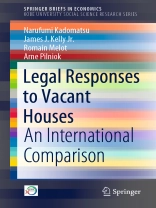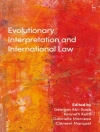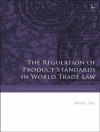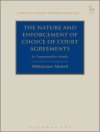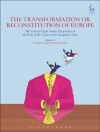This book presents an international comparison of legal responses to the issue of vacant housing in Japan, the USA, France and Germany. While vacant housing is a shared problem in these four countries, the origin and context of the problem, as well as the focus of legal responses, differ considerably. Presenting the outcomes of an international symposium, this book explores different legal approaches (private/public law, federal/national/municipal governments, demolition/expropriation/requisition/planning) taken in the respective jurisdictions. It is highly recommended to readers whose work involves practical issues concerning vacant housing and who are interested in theoretical aspects of property law, building law and administrative law. The book also includes a chapter exploring the implications of the “tragedy of the commons/anticommons” for contemporary land use issues in Japan such as landscape protection, area management and unclaimed land.
قائمة المحتويات
Introduction.- Chap.1 Emergence of Unoccupied House Problem in Japan and Legal Measures towards This Issue.- Chap.2 Municipal Responses to Vacant Properties in the United States.- Chap.3 Expropriation of Vacant Property in France: the Case of Substandard Housing.- Chap. 4 The Urban Planning Development Concept as a Central Instrument for Managing Apartment Vacancies in German Law.- Chap.5 The Tragedies of the Commons and Anticommons in an Era of Underuse.
عن المؤلف
Narufumi Kadomatsu is a Professor of Administrative Law at the Graduate School of Law, Kobe University. After graduating from the University of Tokyo in 1986, he completed his Master’s and Doctoral Program at its Graduate School; he also worked as a Research Associate at the university’s Institute of Social Science. He was appointed as an Associate Professor at Kyushu University in 1996 and transferred to Kobe University as a Professor in 2005. He also studied one year at the University of Hamburg (1998–1999) and taught Japanese Law at the University of Munich (2003–2004).
Jim Kelly is a Clinical Professor of Law at Notre Dame Law School. He teaches, researches and practices community development law. He earned his B.A. from the University of Virginia in 1987 and his J.D. from Columbia in 1994. Before going into teaching, Kelly worked, as Executive Director of Save A Neighborhood, Inc. and a Legal Consultant for Baltimore’s Project 5000, to assist city governments and community groups in acquiring clear titles to vacant houses and vacant lots. He previously worked as a Staff Attorney for the Community Law Center, serving Baltimore non-profits in their community revitalization efforts. From 1994 to 1999, he represented and counseled tenants and tenant groups for the Northern Manhattan Improvement Corp., where his work was funded by the Skadden Fellowship Foundation. Prior to joining the law school faculty in 2011, Kelly was an Assistant Professor at the University of Baltimore School of Law and a Visiting Professor at Washington and Lee University School of Law. Romain Melot is Director of the research unit UMR SADAPT INRAE (National Institute for Research on Agriculture, Food and Environment)/Agro Paris Tech (Agro Paris Tech-Université Paris Saclay), équipe Proximités. He completed his Agrégation in Philosophy in 1998 and his Doctor of Social Sciences at the Ecolenormalesupérieure de Cachan in 2003. His research is chiefly in thefield of sociology of law and focuses on issues of land and property rights. He has developed research that takes a cross-cutting look at these issues, both in terms of the implementation of administrative law (urban planning and environmental litigation, planning regulatory practices) and private law litigation (lease and expropriation litigation).
Arne Pilniok studied law and administrative sciences at the University of Hamburg and the University of Leuven. After working as a Research Assistant in the DFG research group “Governance der Forschung, ” he was appointed as a Junior Professor (Assistant Professor) at the University of Hamburg. His research addresses the fundamentals of administrative law and the administrative sciences (especially in multi-level systems), law of democracy, legal regulation of research and legal education/the legal profession.
